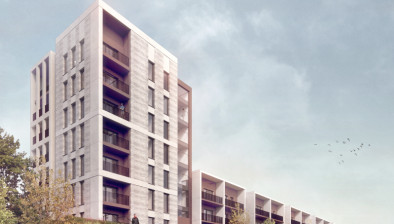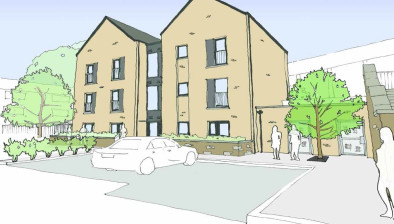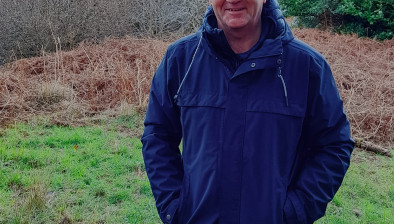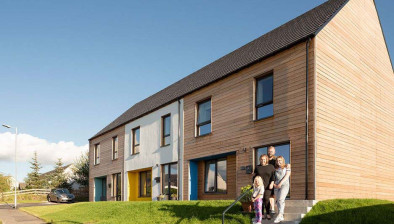Springfield Cross development becomes Passivhaus certified
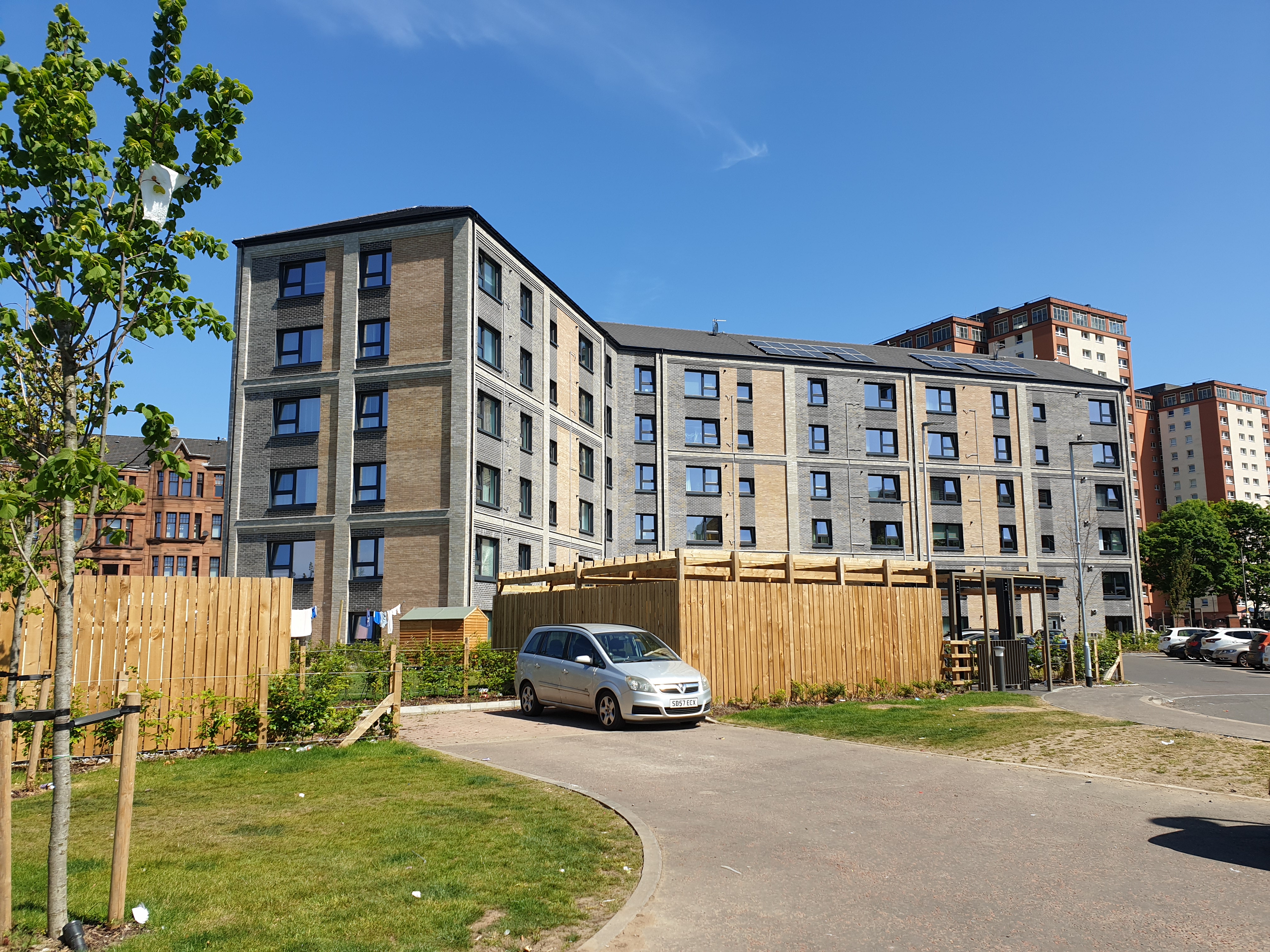
Springfield Cross
This week West of Scotland Housing Association and development partners hub West Scotland and CCG (Scotland) unveiled a plaque to celebrate the Passivhaus certification of the landmark Springfield Cross social housing development in Glasgow’s East End — a significant milestone in the city’s sustainability agenda of achieving ‘net zero’ by 2045.
“Passivhaus” is one of the most rigorous design standards for new build housing in the UK. To achieve the certification, homes have an enhanced envelope using thicker insulation and triple-glazing amongst a range of innovative measures to vastly improve airtightness. Through minimising areas for heat to escape, this results in a much lower demand for energy which in turn drastically reduces annual fuel bills and is a means to tackle fuel poverty.
The ultra-low emission homes will also see benefits through the use of a mechanical ventilation heat recovery system. The system recycles heat generated in everyday use of the property to provide constant, filtered air, meaning that indoor air quality is healthier to breathe.
When work began in 2020, Springfield Cross - located in Glasgow’s East End, at the junction of London Road and Springfield Road - was the largest Passivhaus development in Glasgow. It comprises a total of 36 two and three bed homes for social renting and provides comfortable, sustainable living for tenants, the first of whom began moving in late 2022.
WSHA are now in the late stages of construction of a new Passivhaus-certified site to the North of the city, in Dundashill. WSHA continues to monitor the benefits of Passivhaus through robust data gathering from tenant surveys and environmental sensors within the Springfield Cross buildings, and learning gained has been applied to the new site, resulting in further efficiencies. The Dundashill development comprises 90 one-to-three-bedroom homes, including the association’s first homes available for Mid-Market Rent and is the largest Passivhaus development under construction in Scotland.
Brian Gannon, chief executive, West of Scotland HA, said: “All the partners in this project can be proud of what we have achieved in delivering what was, at the time, Scotland’s biggest Passivhaus development. It is often easier to let others be the innovators and follow on after lessons have been learned, particularly when there are financial and reputational risks.
“So, we are delighted that the challenge of providing an innovative Passivhaus social housing development has proved so successful, not just for the partners involved, but more importantly for the significant impact it has had on the health, finances and general well-being of the residents living in these new energy efficient and affordable homes.”
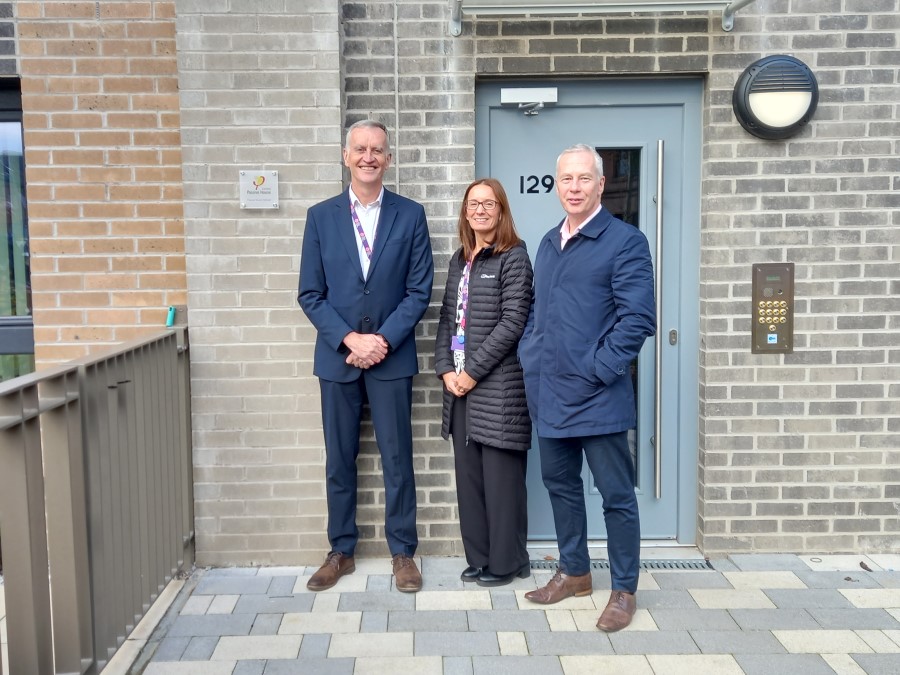
Brian Gannon, Karen Shaw and Andrew Kubski of WSHA
Reduced energy bills for the tenant and lower carbon emissions demonstrate the adoption of Passivhaus standard as a hugely important step forward in understanding how fuel poverty can be tackled across Scotland.
Iain Marley, chief executive, hub West Scotland, added: “The team and board at hub West are very proud to have been involved in this special low carbon project. The delivery of this fully certified Passivhaus development represents a significant milestone for the affordable housing sector and it testifies to West of Scotland Housing Association’s ambition and innovation. The building has been carefully designed and built to enhance the thermal performance and quality of air and light within the individual flats. This results in lower energy usage which will mitigate escalating fuel costs and fuel poverty.”
David Wylie, managing director of CCG, said: “CCG has been mainstream in the delivery of Passivhaus homes since 2011 thanks to our capabilities in offsite manufacturing. A leading-edge approach, ‘offsite’ literally means that we take typical processes associated with construction away from the site environment and instead, we undertake them within our advanced factory premises. In the case of Springfield Cross, the homes were made right here in Glasgow just 2.5 miles away.
“Controlled conditions and semi-automated processes allow us to meet the stringent design parameters of Passivhaus whilst our integrated construction expertise is critical to quality control once we are onsite. It is an incredibly difficult standard to achieve and I cannot commend our team enough for how they operated during the unprecedented circumstances of the pandemic.
“CCG will continue to deliver much-needed homes whilst sustaining jobs in the city thanks to the commitment of clients such as WSHA and we look forward to closing out Scotland’s largest Passivhaus development over the coming months.”
The team behind Springfield Cross were further recognised last week at the Chartered Institute of Housing’s annual Scotland Housing Awards, being shortlisted for Excellence in Learning and Development. This recognised the team’s achievement in supporting tenants as they entered their new, more energy-efficient homes by developing a learning and training programme to help them make best use of the new mechanical ventilation heating system. This programme contributed to further dissemination of knowledge around practical sustainability solutions and made sure tenants received immediate benefits from the new fuel-economising technology.
Councillor Kenny McLean, convener for housing at Glasgow City Council, added: “There is a lot of important work going on in Glasgow to deliver homes that are affordable to heat and are energy-efficient, and this development at Springfield Cross is a fantastic example of that. These socially-rented homes are significant in terms of what can be achieved in meeting the city’s aims to combat fuel poverty and reduce emissions, and we were delighted to work with our partners in the completion of this development. Further good news is that more such homes are being built in Glasgow.”






